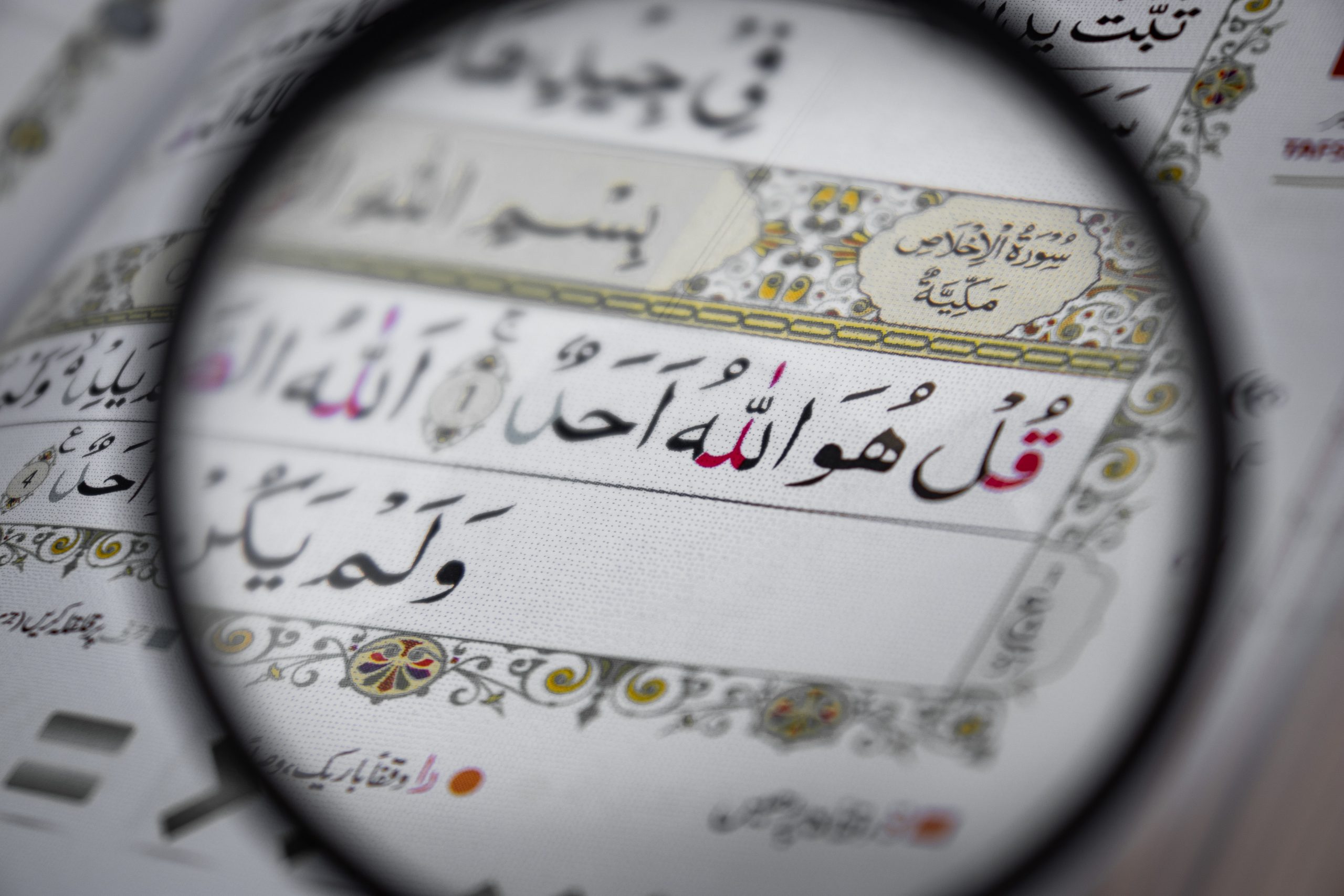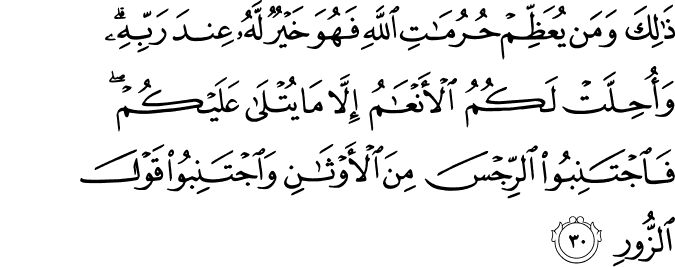#Islam
He Is One: Truly Knowing Allah
Published

One of the many beautiful things about Islam is the simplicity of our creed. In Surat Al-Ikhlas (the Chapter of Sincerity), Allah 
Say, “He is Allah, the Uniquely One (Aḥad)
Allah, the Indivisible.
Keep supporting MuslimMatters for the sake of Allah
Alhamdulillah, we're at over 850 supporters. Help us get to 900 supporters this month. All it takes is a small gift from a reader like you to keep us going, for just $2 / month.
The Prophet (SAW) has taught us the best of deeds are those that done consistently, even if they are small. Click here to support MuslimMatters with a monthly donation of $2 per month. Set it and collect blessings from Allah (swt) for the khayr you're supporting without thinking about it.
He begot no one nor was He begotten,
and never has there been to Him anyone equivalent.” [Surah Al-Ikhlas: 112;1-4]
Allah is Uniquely One, Indivisible, and Incomparable. He is al-Wāḥid (the One) and al-Aḥad (the Unique) – nothing is equal or can be compared to Him. There is something incredibly comforting about how uncomplicated our beliefs are. The concept of tawḥīd – oneness of God – can be explained to anyone, whether a child or an elderly person, an intellectual or someone without any basic education. There are no mental gymnastics required, no ‘leap of faith’ to avoid hard questions; rather there is complete congruence between the intellect, heart, and soul. Indeed, Allah 
Moreover, Allah 




The Importance of Knowing that God is One
The opposite of tawḥīd is shirk – taking other idols with Allah 


Perhaps some of our ailments – those that we cannot point to specifically – are as a result of this disturbance in our soul. We understand that constantly and consistently eating ultra-processed food has gradual (sometimes immediate) adverse effects on our physical health. We may still be able to function, sometimes even appear healthy, but our body has to fight to counteract the negative effects of pseudo foods, and we develop ailments that even affect our mental health.4Lachance and Ramsey, Food, Mood, and Brain Health: Implications for the Modern Clinician, Mo Med, April 2015 When we live in opposition to the Truth and to our purpose, and when we starve our heart and soul of what they need, it is natural that we suffer underlying unease that is not cured by the perfect diet, spin class, and yoga.
And hence, as Muslims, all our actions spring from the conviction that Allah 
The Effects
Allah 
“Have you not considered how Allāh presents an example, [making] a good word like a good tree, whose root is firmly fixed and its branches [high] in the sky?
It produces its fruit all the time, by permission of its Lord. And Allāh presents examples for the people that perhaps they will be reminded.” (Surah Ibrahim: 14;24-25]
The ‘good word’ here is the profession of faith: lā ilāha illā Allāh – there is no god but Allah 
Truly internalizing the meanings of al-Wāḥid and al-Aḥad does not only result in a tranquil soul, and in being and doing good. It goes to the root of what we give our hearts to. Allah 

Negating other deities
Bilal, may Allah 






When we say that Allah 

“Indeed, sincere devotion is due ˹only˺ to Allah. As for those who take other lords besides Him, ˹saying,˺ We worship them only so they may bring us closer to Allah, surely Allah will judge between all regarding what they differed about. Allah certainly does not guide whoever persists in lying and disbelief.” [Surah Az-Zumar: 39;3]
There is only Allah, and only He deserves to be worshiped – there are no intermediaries.
Shirk thus includes the belief in other deities, whether worshiped for their own sake, or as a means to Allah 
Knowing this forces us to confront what we have raised to the status of something to be worshiped and submitted to, even if this is subtle. Allah 
“Have you not seen the one who takes his own desires as a god?” (Surah Al Furqan: 25:43).
And it thus compels us to ask ourselves, is there really no other ‘god’ in my heart? What drives and motivates my actions – is it the unadulterated Oneness of Allah 

Knowing He is al-Wāḥid and al-Aḥad also encompasses the symbolic actions that express those beliefs.
Symbolism
There may be some practices, whether traditional or contemporary, that we think are harmless, but they contain elements of shirk. The Prophet ﷺ said, ‘Whoever hangs an amulet around his neck has committed an act of idolatry.’ (Aḥmad)
In this context, one of the people who had come to pledge allegiance to the Prophet ﷺ was wearing an amulet, and it was generally worn for protection. However, it is interesting that the Prophet ﷺ did not specify the purpose of wearing the amulet. He did not say, “whoever wears it for x reason”. While it was generally known that protection was the purpose of wearing the amulet – it was not simply decorative – the Prophet ﷺ made a blanket prohibition against it. It would be akin to someone wearing a cross today because it is fashionable. Even if their intentions are not religious, it would still be considered prohibited.
Indeed, many religious practices nowadays are watered-down, their previous rituals reduced to heart-warming celebrations that everyone can take part in and enjoy. This includes, for example, Christmas, Easter, Diwali, and others. However, they are not only rooted in ideas that are in contradiction to Allah’s 

“And That is so. And whoever honors the rituals of Allah, it is best for them in the sight of their Lord.The ˹meat of˺ cattle has been made lawful for you, except what has ˹already˺ been recited to you. So shun the impurity of idolatry, and shun words of falsehood.whoever honors the rituals (ḥurumāt) of Allah, it is best for them in the sight of their Lord.” [Surah Al-Haj: 22;30]
As well as:
“And whoever honors the symbols (shaꜤā’ir) of Allah, it is certainly out of the piety of the heart.” [Surah Al-Haj: 22;32]
These two verses are specifically talking about the rites and rituals of Hajj, as well as the places, times, and states Allah 





One in Our Hearts
This brings us back to Allah 
Regularly reminding ourselves that there is no god but God Himself – essentially, that He is al-Wāḥid al-Aḥad – helps to renew our faith as we become conscious of removing from our hearts anything that we have made equal to Him. One of the companions loved Surat al-Ikhlas so much that he would recite it in every prayer, saying ‘It is because this chapter describes the Most Merciful, and therefore I love to recite it.’ We can pause here to reflect: He loved to recite this chapter not because it was a short one, nor because it was the only one that he had memorized, but rather because it was a description of Allah 
As believers in His Oneness, we affirm Allah’s 

–
The author would like to thank Hala Akram for her feedback on the draft of this article.
Related reading:
– Tawhid: Asserting God’s Unity
– A Strengthened Heart: Connection To Allah During Difficulty
Keep supporting MuslimMatters for the sake of Allah
Alhamdulillah, we're at over 850 supporters. Help us get to 900 supporters this month. All it takes is a small gift from a reader like you to keep us going, for just $2 / month.
The Prophet (SAW) has taught us the best of deeds are those that done consistently, even if they are small. Click here to support MuslimMatters with a monthly donation of $2 per month. Set it and collect blessings from Allah (swt) for the khayr you're supporting without thinking about it.
inan Yousef has been an author for over a decade, and most recently published the book, "Reflecting on the Names of Allah" (Al-Buruj Press, 2020). She has been a student of Sheikh Akram Nadwi for many years, and currently studies tafsir at Al-Salam Institute. Jinan teaches classes on the names of Allah for SWISS online. She is passionate about helping Muslims connect to Allah through knowing Him by His names.


Ramadan, Disability, And Emergency Preparedness: How The Month Of Mercy Can Prepare Us Before Communal Calamity

Somalis In Firing Line Of American Crackdown

Week 1 in Review: Is Your Teen Actually Changing? | Night 7 with the Qur’an

NICOTINE – A Ramadan Story [Part 1] : With A Name Like Marijuana

Why Your Teen Wants to Change Their Muslim Name | Night 6 with the Qur’an

30 Nights with the Qur’an: A Ramadan Series for Muslim Teens

How to Make this Ramadan Epic | Shaykh Muhammad Alshareef

[Podcast] The Parts of Being an Imam They Don’t Warn You About | Sh Mohammad Elshinawy

[Podcast] Guardians of the Tradition: Muslim Women & Islamic Education | Anse Tamara Gray

Op-Ed: Bitterness Prolonged – A Short History Of The Somaliland Dispute

Week 1 in Review: Is Your Teen Actually Changing? | Night 7 with the Qur’an

Why Your Teen Wants to Change Their Muslim Name | Night 6 with the Qur’an

The Comparison Trap | Night 5 with the Qur’an

When You’re the Only Muslim in the Room | Night 4 with the Qur’an

When Honoring Parents Feels Like Erasing Yourself | Night 3 with the Qur’an
Trending
-
#Islam1 week ago
30 Nights with the Qur’an: A Ramadan Series for Muslim Teens
-
#Current Affairs1 month ago
[Podcast] Should Muslims Ally with Conservatives or Progressives? | Imam Dawud Walid
-
#Islam4 weeks ago
How to Make this Ramadan Epic | Shaykh Muhammad Alshareef
-
#Life4 weeks ago
[Podcast] The Parts of Being an Imam They Don’t Warn You About | Sh Mohammad Elshinawy

















